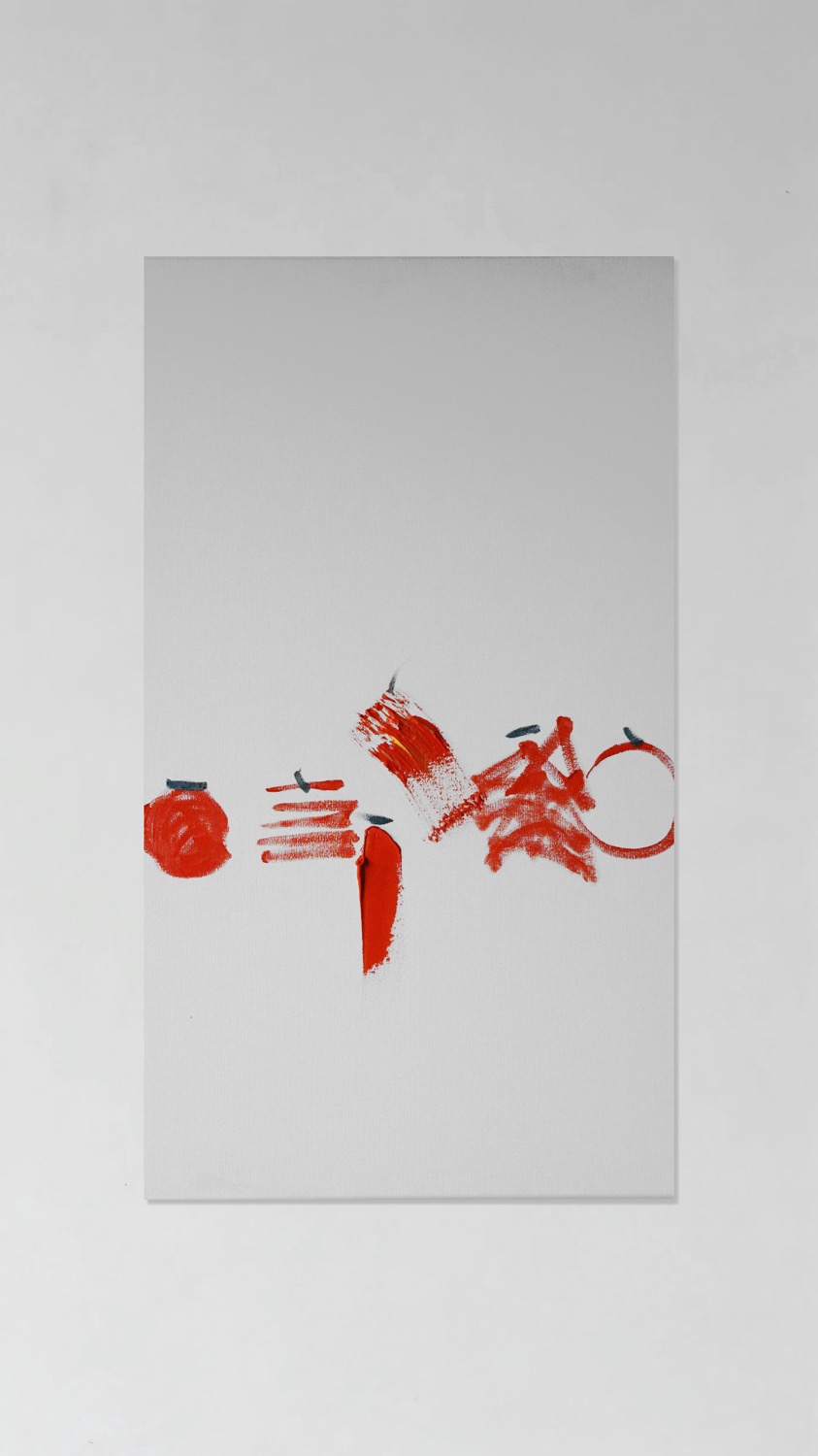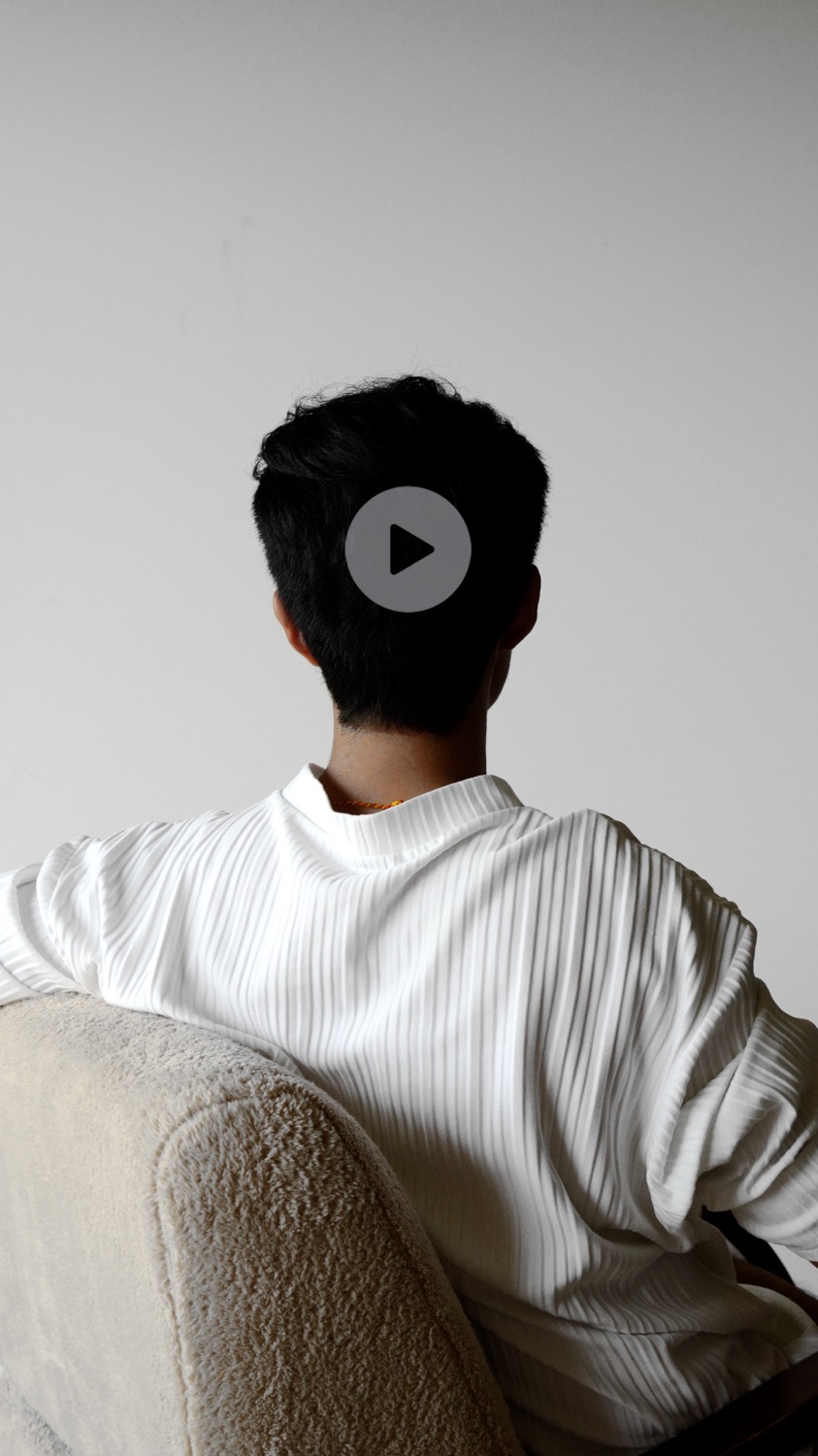抵抗填充:一场关于留白的当代实践
Resisting the Fill: A Contemporary Practice of Negative Space
此次创作超越了将“留白”视为单纯美学技巧的讨论,将其重新定义为一种积极的生存策略。以《六柿图》为镜,映照出现代生活的荒谬:我们如同焦虑的收藏家,只顾往人生的画布上堆砌各种现状的“柿子”。它论证了“空白”不是虚无,而是自由、创造与自我存续的必需维度,是一次对效率至上文化的抗议。
《六柿图》的当代解构这不是对古典的致敬,而是一次凌厉的当代转译。画布上,代表“柿子”的符号被简化为几近抽象的、沉重的几何形体。这片“空白”不再是牧溪笔下宁静的虚空,而是一种具有吞噬感和无限可能的场域。作品通过“实”与“虚”的紧张对抗,迫使观者思考:在如此沉重的现实引力下,我们如何为精神捍卫一块属于自己的“空白”?
通过文字、视频、绘画不同媒介共同构建了一个强有力的观点:在一切都被明码标价、塞满意义的时代,主动选择“留白”是一种深刻的叛逆。它不是为了逃避,而是为了夺回生活的主权。这次艺术实践,旨在邀请每一位观众,成为自己人生画卷的“留白者”。
This project moves beyond viewing "negative space" as mere technique, reframing it as a vital strategy for living. Using Six Persimmons as a mirror, it reflects the absurdity of modern existence: we have become anxious collectors, relentlessly piling the "persimmons" of life onto our canvas. It argues that emptiness is not void, but a necessary dimension for freedom, creativity, and self-preservation—a quiet protest against a culture of relentless efficiency.
The contemporary deconstruction of Six Persimmons is not an homage, but a pointed translation. On the canvas, the symbolic "persimmons" are reduced to near-abstract, weighted forms. The "emptiness" surrounding them is no longer the serene void of Muqi’s painting, but a potent field of tension and possibility. Through this confrontation between substance and space, the work challenges viewers: under the weight of reality, how do we defend a place for stillness within ourselves?
Through text, video, and painting, the project builds a compelling argument: in an era where everything is commodified and overstuffed with meaning, the conscious choice of "negative space" becomes a radical act. It is not an escape, but a reclamation of agency. This artistic practice is an invitation—for each viewer to become the creator of silence in their own life.

